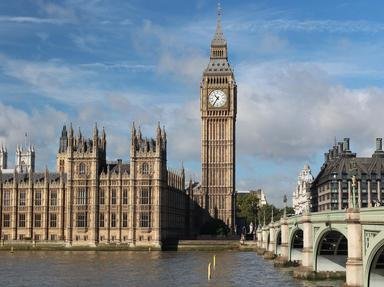Quiz Answer Key and Fun Facts
1. "__________" Gordon Brown
2. "__________" James Callaghan
3. Alec "__________" Douglas-Home
4. "__________" Harold Macmillan
5. "__________" Anthony Eden
6. Clement "__________" Attlee
7. "__________" Neville Chamberlain
8. Herbert "__________" Asquith
9. "__________" Gascoyne-Cecil, 3rd Marquess of Salisbury
10. "__________" Grey, 2nd Earl Grey
Source: Author
EnglishJedi
This quiz was reviewed by FunTrivia editor
stedman before going online.
Any errors found in FunTrivia content are routinely corrected through our feedback system.
